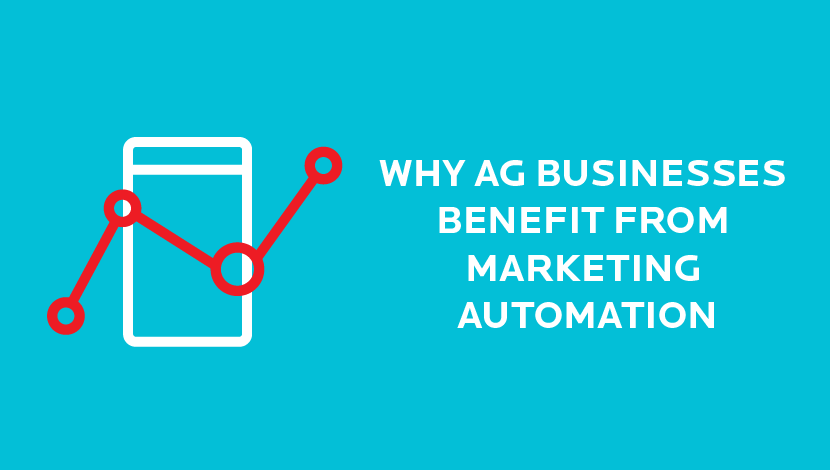
The business of agriculture has changed dramatically over the past 40 years. Today’s farmers are by nature highly technically literate, working with increasingly sophisticated management plans that incorporate precision data and analytics. From choosing the right seed to configuring effective in-season crop protection applications, farmers rely on multiple communication sources to ensure they are using the best product with the right equipment at the ideal time.
As farmers have adopted new ways of gleaning cutting-edge information – a Twitter connection with a niche influencer, a valued blog post, a YouTube video – many businesses have continued to communicate with farmers primarily via traditional and more time-consuming methods when we now have the ability to engage with highly personal and relevant content.
You know that ‘one-size-fits-all’ doesn’t work with your customer base and your sales team can only make so many individual calls in a day. How can you make your content and marketing assets work smarter for you? A big part of the answer lies in curating content that is specific and relevant to each individual farmer every single time you communicate with them.
Agriculture differs from many other industries because the hectic times are seasonal and more often than not driven by wild weather extremes. The customer base is often out in the field when you want to communicate with them the most about some timely product or method. As a result, ag service and supply businesses must be more strategic than ever in communicating and delivering relevant content to farmers. There’s just no room for fire-hosed content that wastes the farmer’s time.
Automated marketing for automated farms
Marketing automation uses software and technology to help marketers and organizations effectively market and communicate on multiple channels (including email, social media, texting) and automate repetitive tasks.
So, why does marketing automation make sense for ag businesses?
1. Agriculture is a seasonal business
And this means that you have strict timelines and limited windows of opportunity to attract your customer’s attention, engage and convert leads to sales. Your message must be delivered completely in synch with the reality of your customer’s buying journey – what time of year do they review new seed varieties, consider equipment purchases or upgrades, investigate new apps and tools for data collection?
By implementing a marketing automation strategy, you can reach the farmer at the right time with the right message. If a farmer Googles “fertilizer retailer in my area”, finds your website and fills out a form for more information, the software will automatically add them into a lead nurturing program that sends targeted messages based on how the customer filled out the form.
2. Your customers are all unique
Depending on where you fit in the industry supply and value chain, you may have customers across North America. You may have customers who are growers, retailers or distributors, advisors or consultants. You may have customers who are in their 20s while others are in their 60s. These people don’t receive the same message during a sales call, and your automated marketing shouldn’t be any different.
With a solid marketing automation platform, you can customize your message to fit every one of your customers or clients at the right time. By creating dynamic content, you can send a personalized email to 1,000 people in the same amount of time it takes you to write one email.
Similarly, if your customer is out in the field, you can reach them on other channels, like text messaging. Or if you know your customers are browsing Facebook at night, why not target them there? Marketing automation is all about reaching your buyers where they spend their time.
3. Turn your lurkers into customers
Marketing automation helps you convert general website traffic into REAL customers. By giving your visitors opportunities to download useful information and purchase directly from your website, you create new ways to drive your customers to take action.
Autoresponder series save time and allow you to automatically continue the conversation based on particular triggers: time-based (contacting a customer after they have downloaded a particular piece of content on your website) or behavioural (send this email only if a customer does X at a tradeshow).
Take away?
Designing and implementing marketing automation strategies are a great tool for small and large ag businesses alike. As a complement to your strong sales force, trade show presence and great content, automation allows for your customer base to receive the right messages in the right place at the right time.
Ag businesses have unique marketing needs that can be addressed by the right marketing automation tools and, perhaps, a little help from marketing technology experts.
Want more insight? We’d love to engage and nurture your lead.
